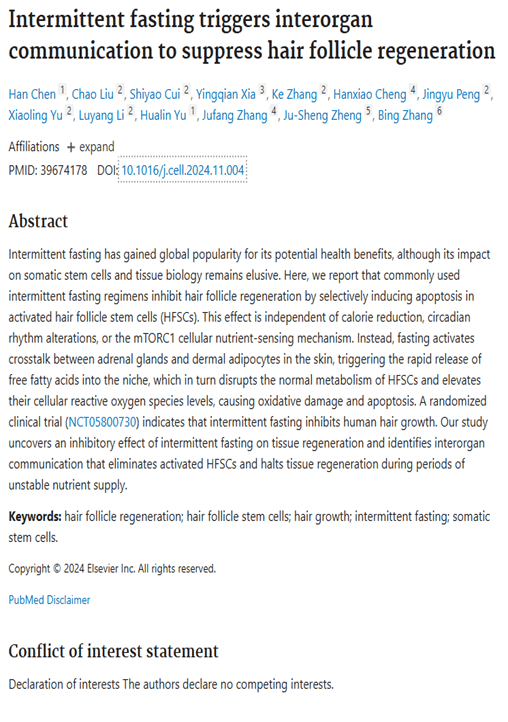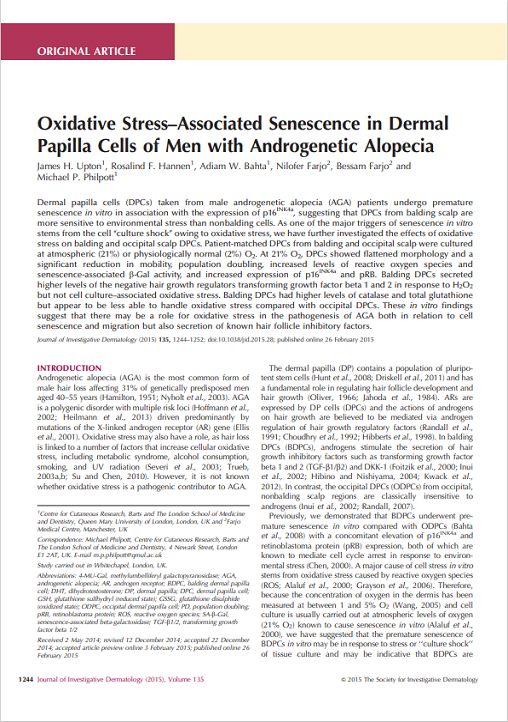
#25 Intermittent fasting triggers interorgan communication to suppress hair follicle regeneration
Han Chen, Chao Liu, Shiyao Cui, Yingqian Xia, Ke Zhang, Hanxiao Cheng, Jingyu Peng, Xiaoling Yu, Luyang Li, Hualin Yu, Jufang Zhang, Ju-Sheng Zheng, Bing Zhang
This research paper systematically analyzes the effects of intermittent fasting (IF) on hair follicle stem cells (HFSCs). In contrast to previous studies that have generally highlighted the positive impact of IF on overall health and stem cell regeneration, this study newly suggests that IF may inhibit HFSC survival and hinder hair growth.
Through experiments conducted on mice, the researchers found that common forms of IF significantly suppressed hair growth. Interestingly, although metabolic improvements were observed, prolonged fasting led to increased HFSC apoptosis and a delay in the hair cycle.
In particular, the study identified that cortisol and epinephrine, secreted by the adrenal glands during fasting, induce lipolysis in subcutaneous adipocytes. The free fatty acids generated in this process indirectly affect HFSCs, leading to cell death. The same results were observed in experiments where these hormones were directly injected into the skin, demonstrating that long-range signaling between the endocrine system and the skin plays a crucial role in maintaining HFSC homeostasis. Furthermore, the topical application of the antioxidant vitamin E was shown to potentially prevent HFSC damage and restore hair growth.
Lastly, clinical trials involving human subjects who practiced IF also demonstrated an increase in lipolytic hormone levels and a slowdown in hair growth, consistent with the findings in the animal model. This suggests that IF may have similar adverse effects on human hair follicles.
In conclusion, this research demonstrates that, contrary to the general perception that IF can have positive effects on overall health, it may lead to unexpected negative outcomes in terms of hair growth. These findings offer a new perspective for the development of treatments for hair loss and stem cell-based therapies, and they may provide important insights for future dietary and hair loss treatment strategies.





